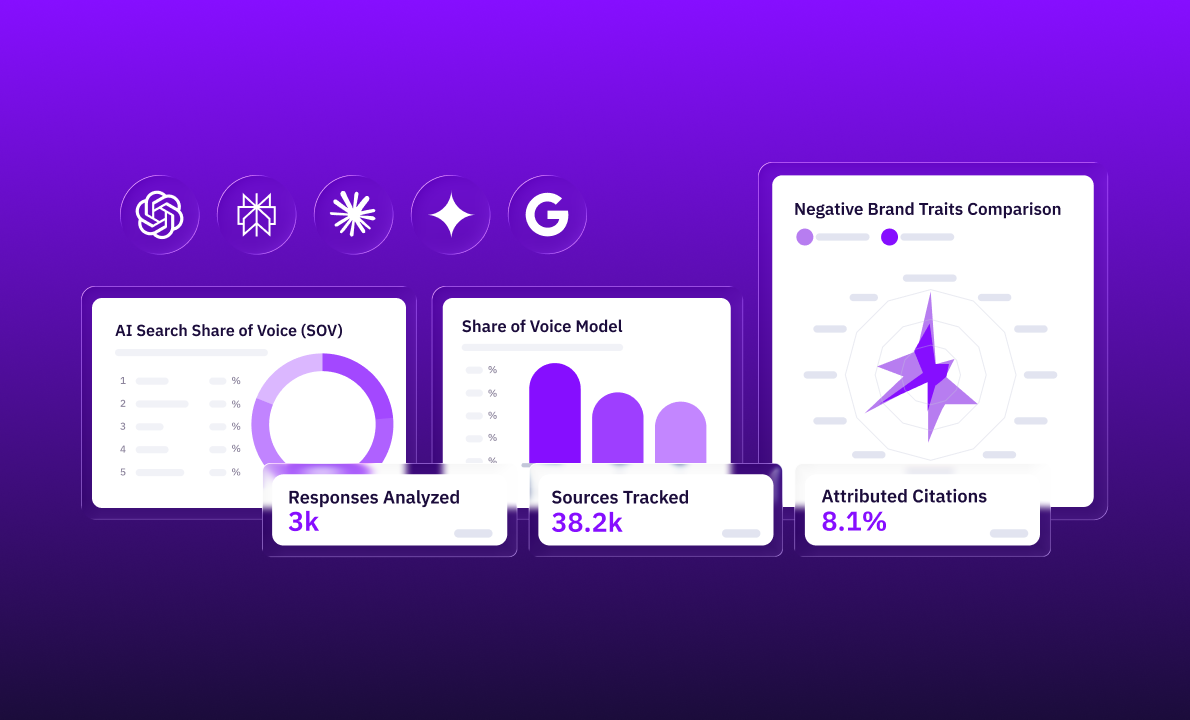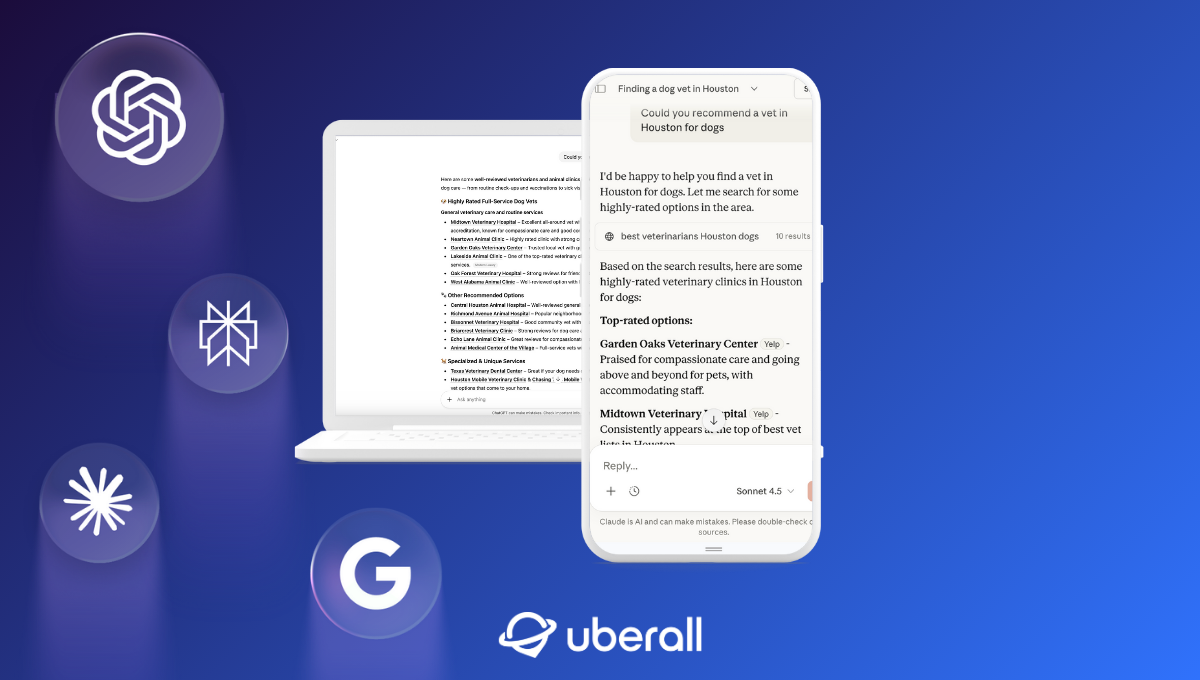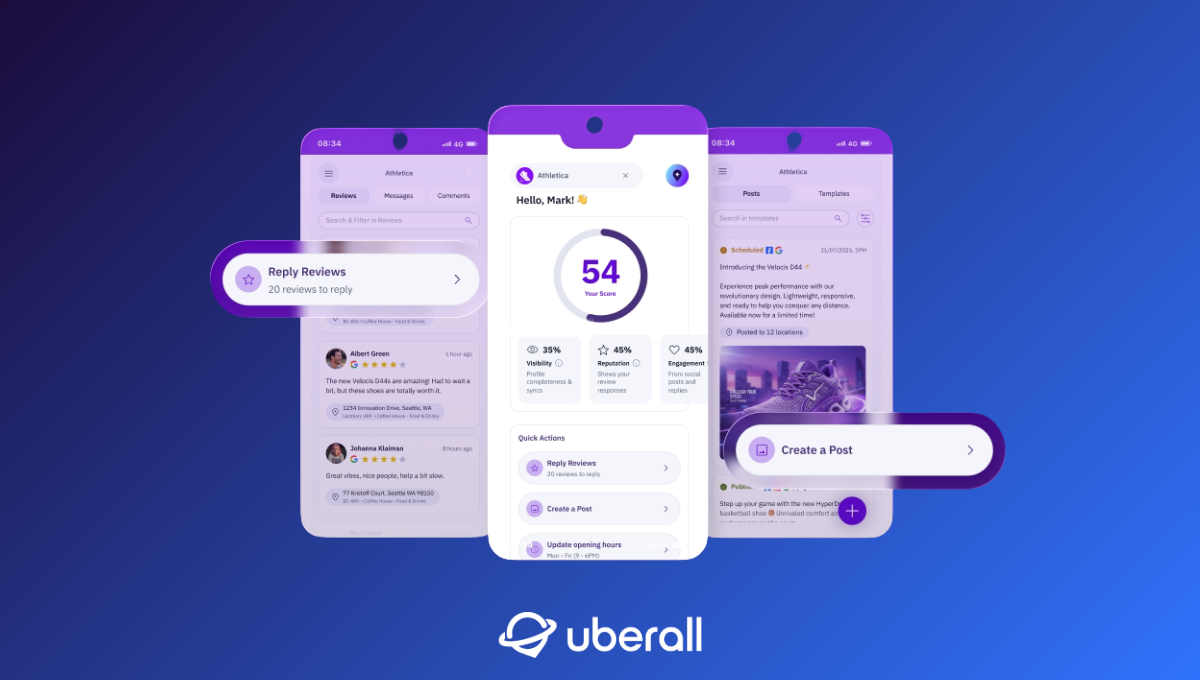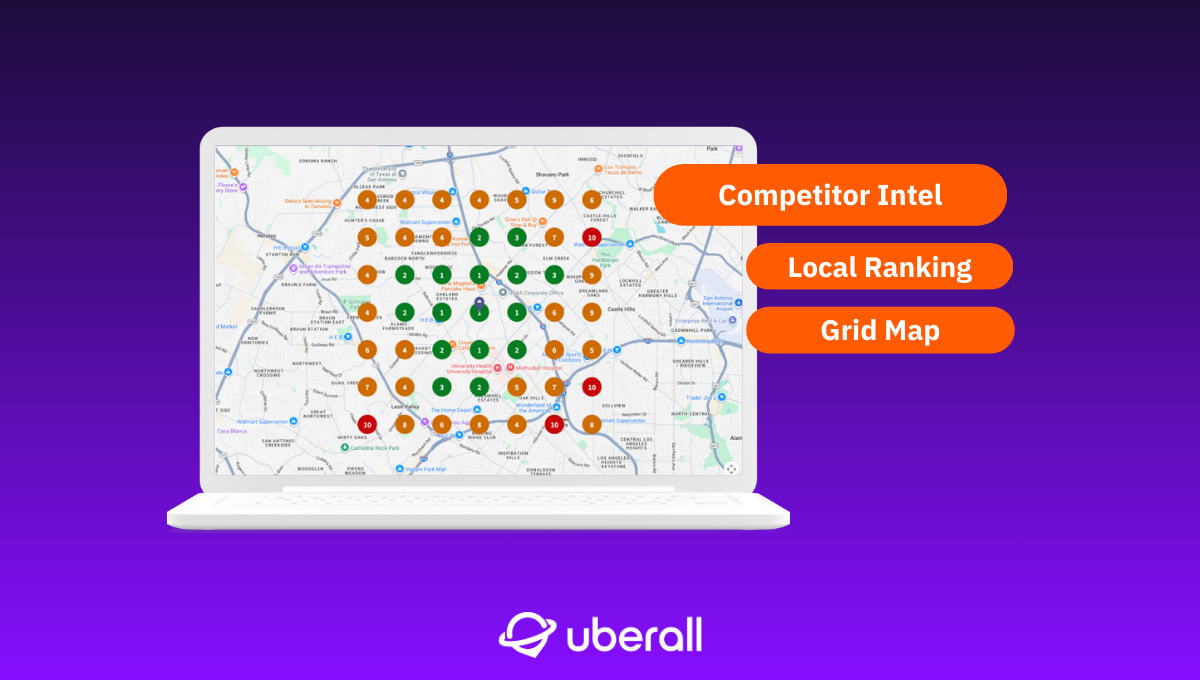
Google Local Search Optimization — What You Need To Know
Find out how Google’s local search algorithm for rankings tightly correlates with three central elements: proximity, relevance, and prominence.
Google is notoriously effective at figuring out which businesses best match what people search for locally. The company regularly refines the local search algorithms that determine where businesses show up in local search results.
Google’s Algorithms Are Constantly Changing
At a high level, the company wants to prioritize quality content that provides value to its users. To rank well, it’s not enough to apply tactics like keyword stuffing — and that’s a good thing for all web users.
The Google local search algorithm determines local search rankings related to Google Business Profile (GBP) listings. These public business listings on Google include information about local businesses that match search requests. The higher a business ranks, the more likely a searcher will click on its listing in the search engine results pages (SERP). What’s more, these local searches often result in a Google 3-Pack — the top three organic search results that are served up alongside a map and visible on a smartphone without scrolling.

It’s impossible to identify every factor in Google’s local search algorithm — Google keeps the specifics under lock and key. We do know, however, that local search rankings tightly correlate with three central elements: proximity,relevance, and prominence.
1 - Proximity: The Number One Factor in Google’s Local Search Ranking
Google is smart enough that the search engine infers local intent even if the searcher doesn’t include “near me” in their query. Google also adjusts results based on whether a searcher includes a location in their search. For instance, “Best deep dish pizza downtown Chicago” will show results for Chicago, even if the searcher is in New York.
It is important to recognize that proximity search results are fluid and dependent on other modifiers that the searcher includes in their query. For instance, Google will only present businesses with four stars or higher if a searcher includes the qualifier “best.”
Because of the fluid nature of proximity search, understanding how to rank for relevance and prominence is critical. We’ve all done a search while outside a business, maybe a restaurant, to check their reviews or browse their menu and found that the business we were parked right outside of wasn’t the first result on the list. This is because relevance and prominence factors are considered as well.
2 - Relevance: The Secret Weapon for More Online Traffic
Google is smart. When someone searches a local business category, the search engine will serve up the most relevant content. Modifiers like “best,” “open now,” and “vegan options” will change the Google 3-Pack results — the top three organic search results.
Google defines relevance by how well a local Business Profile matches a search query — for instance, whether a particular business sells or has the attributes a searcher is looking for. To create a relevant listing, a business must carefully consider the following:
- Local listing categories and attributes
- Local page signals
- Social posts and online review responses
Local Listing Categories and Attributes
Your business listing’s GMB category and attributes impact your relevance score for proximity searches. How well you complete your profile will affect your final relevance score and determine which businesses show up in the Google 3-Pack.
Attributes like “free Wi-Fi” or “curbside pickup” will eliminate businesses without those attributes. Google’s local search algorithm may also expand its location radius to find relevant businesses that best match a search query’s qualifiers and attributes.
To score high for relevance, it’s crucial to maintain complete and accurate information on all your listing pages such as Google, Yelp, Bing, and Nextdoor. Search engines crawl local relevance signals and factor the information they find across the web into an overall relevance score.
Category selection —There are nearly 4000 GMB categories. You can pick one primary category and up to ten categories in total. Google weighs your primary category the most when determining your ranking. Pick a category that best matches your business — the more relevant the better — by following these guidelines:
- Be specific to narrow down the number of businesses you’ll compete against.
- Minimize the number of GMB categories to describe your business. The more categories you select, the less impact each individual category will have on your ranking.
- Describe your business, not your services or amenities. For example, if you own a salon, “manicures” is a service, not a business description.
Attribute selection — Select attributes linked to your GMB category. Attributes are features of your business that people may search for, such as free Wi-Fi, delivery, kids’ menu, and so on.
Google maintains a list of GMB attributes.
Local Page Signals
Another important aspect of your local digital presence is a website or webpage. If you have a multi-location business, it is critical to create separate localized pages for each location with all the details customers need to find and contact you.
Focus on local page keywords that matter — Before you create your local business website, spend time on keyword research. Find keywords that are highly relevant to what you offer as well as keywords that are used most frequently with high intent. Skip the jargon and focus on the customer’s perspective — think like they do when coming up with content. For example, a Mexican restaurant might optimize for keywords like “Mexican restaurant” or “tacos near me.” “Mexican black beans” might not be as strong — users that search this query will likely be more interested in recipes or grocery stores, not restaurants.
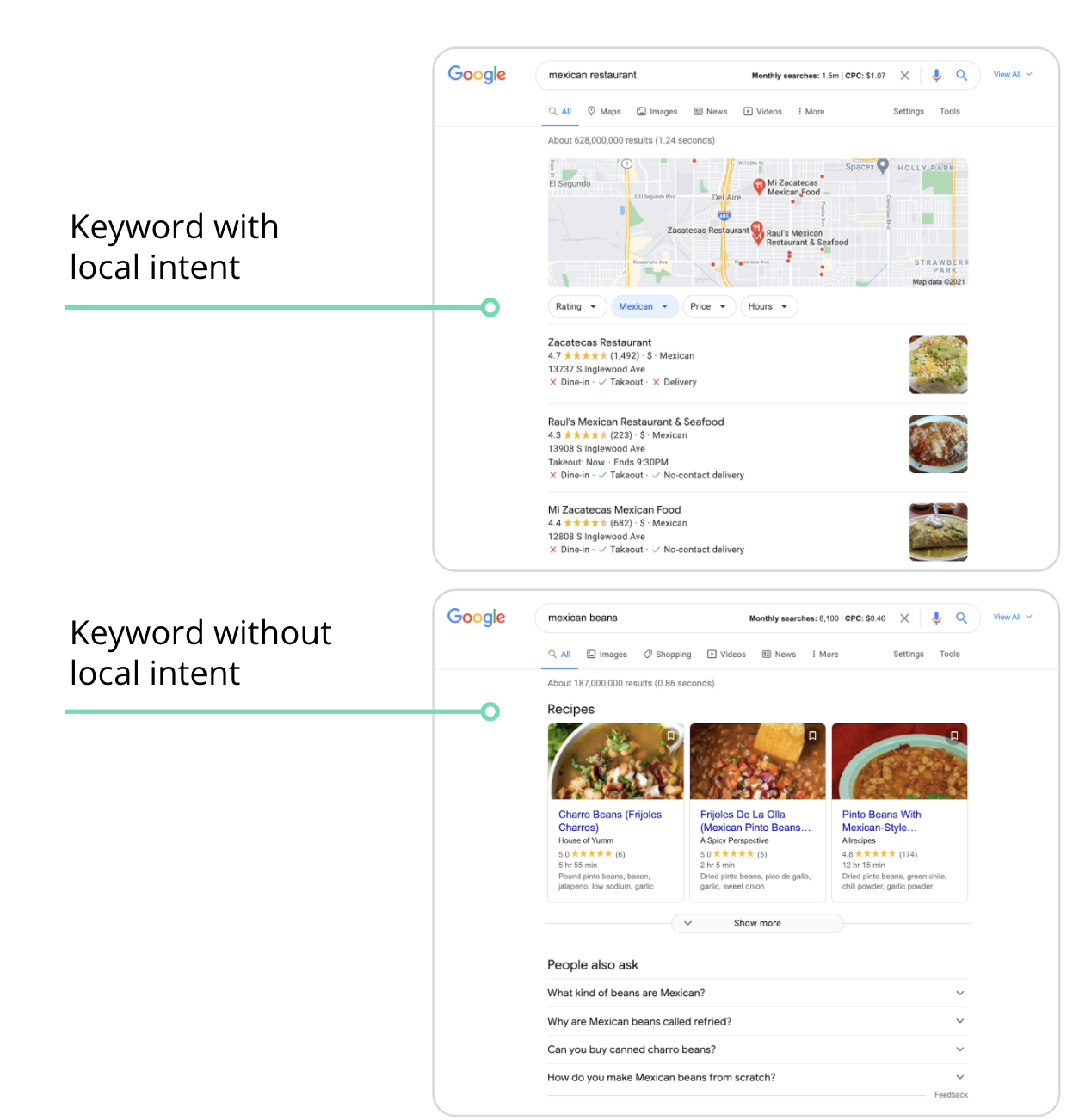
Localize your content — It’s best practice to localize content within your web pages. Using your city’s name here and there can be effective. You can also create content about your local area. Aim to tie what’s going on locally to your business. Also consider using pictures taken from your actual location. Many smartphones automatically geotag pictures with the precise latitude and longitude of where the picture was taken, this geotag is crawled by search engines helping to validate local relevance.
Optimizing for on-page signals — Google’s local search algorithm considers not just whether your page provides relevant content, but also whether it has proper on-page signals. Optimize your webpage by properly formatting and including keywords in elements such as:
- Headings
- Meta descriptions
- Title tags
- Image tags
Headings —In the early days of SEO, Google relied heavily on on-page headings tagged by the webpage creator as H1, H2, and so on. Today, the local search algorithm has matured to the point where it can recognize a well-structured page without headings.
In a Webmaster Hangout session, Google Senior Webmaster Trends Analyst John Mueller explained, “Your site can do perfectly fine with no H1 tags or with five H1 tags.” SEO company Moz conducted a test and confirmed Mueller’s claim.
Still, as an SEO best practice, use headings to ensure your content is rich and well-organized. Google prefers pages with clear structures, and Moz recommends using large font headlines, whether you use headings or not.
Meta descriptions and tags —An important on-page factor to consider are tags within your page’s code.
- Meta descriptions — Meta descriptions are handcrafted text snippets that are part of a webpage’s code. They appear beneath the title tag in organic search results. Well-written meta descriptions include keywords that entice searchers to click through.
- Title tags —Title tags are a key aspect of organic rankings. Be sure to naturally incorporate keywords such as geographic location in your title tags — don’t stuff or force keywords.
- Image tags —Tagging images with relevant keywords and attributes help to improve local search rankings. It’s also helpful to include geo-tagging and Exchangeable Image File (EXIF) data; keep in mind that images taken with a smartphone or smart device often automatically add geotags.
Online Review and Social Signals
Google does look at reviews when determining relevance, so the more reviews you can secure on the products and services you are known the better. Make sure to solicit reviews from delighted and loyal customers.
A good example of this is in cases where attributes a searcher might be looking for are based on customer discretion, like “best sushi.” When a customer searches “best sushi”, not only does the search result pull sushi restaurants that have four or more stars, it also factors in reviews that use the word “best sushi” in the reviewers comments to find the most relevant search results.
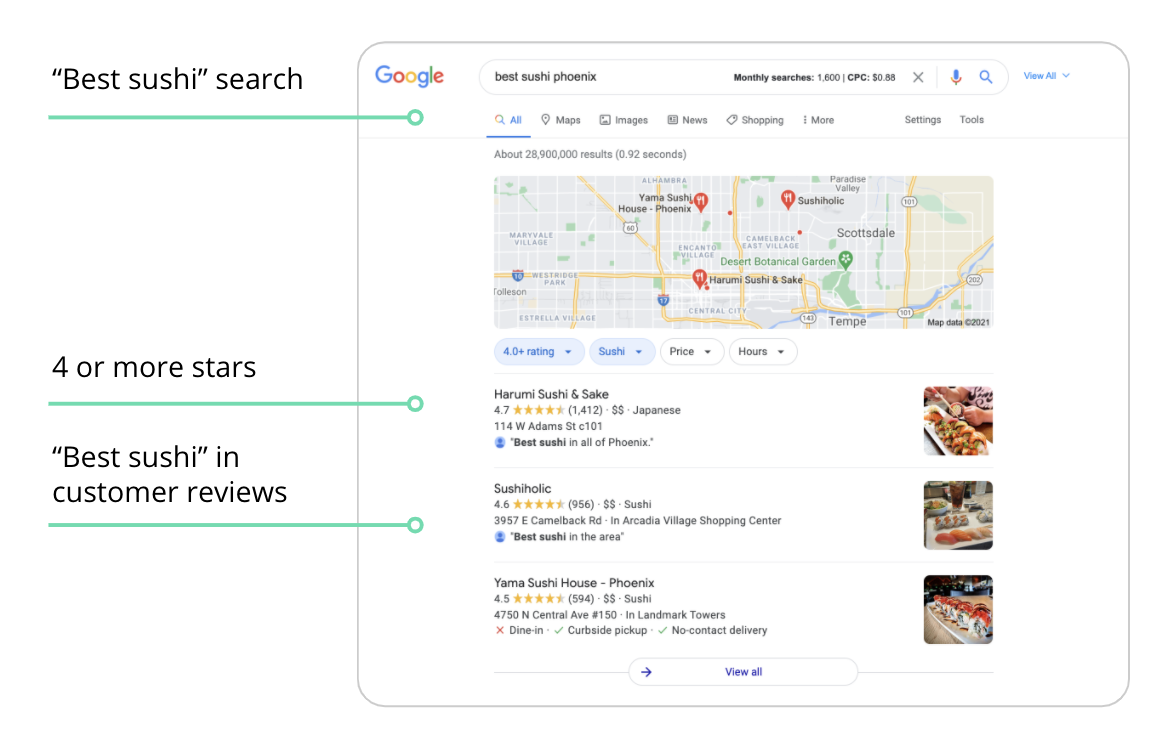
While there is debate on whether or not keywords in review responses are factored into Google’s algorithm when determining relevance, it can’t hurt to add keywords into your review responses to drive relevance scores in the customers mind or emphasize a point made by a reviewer. If a customer leaves a comment like “Best sushi in Phoenix hands down!” you could respond with something like this: “We are so glad to hear you enjoyed your meal — we pride ourselves on bringing you the best sushi in Phoenix with the highest-quality seafood.” Also, when posting to local social pages, weave in your top keywords in any posts.
3 - Prominence: Leverage Your Community for More Online Visibility
Google defines “prominence” by how well-regarded and popular a business is in its local market. Features like review and citation volume — the number of quality listings — affect prominence.
Review Volume and Business Responses
The more reviews and positive ratings a business has, the higher the business will rank in local searches. Google considers several factors related to reviews, including:
- The volume of reviews and average star rating
- Business response ratio (how many reviews a business comments on)
Review signals make up to 15 percent of Google’s local search engine ranking factors. The overall volume of reviews and average star rating at each location is important, as it is a strong indicator of local market prominence. But just as important and often neglected is business review response.
Reading and responding to online reviews is one of the best ways to boost your prominence. Even a small difference in response rates between you and your closest competitor could make the difference between your location or theirs appearing in the Google 3-Pack.
Ideally, you should respond to all reviews. But this can become a full-time job — one well-suited solution for intelligent automation is Uberall. Features like Automated Review Response for no-star reviews, which make up about 50 percent of all reviews, can be a huge timesaver. And as you scale and accumulate more frequent reviews, automation will grow with you.
Citation Volume
Local citations include any online mentions of a local business’s name, address, and phone number. Citations show on websites, apps, social platforms, and business directories like Yelp and the Better Business Bureau.
Businesses with higher citation volumes rank higher in local search rankings. Google examines citation volume alongside other factors to determine whether a business has high authority. You have quite a bit of control over how your business appears in directories, but the sheer volume of online directories and aggregators means the task is very time-consuming.
You could pay a listing service to link your business to hundreds of directories, but Google has evolved to the point where accurate listings on a handful of key directories are more impactful to your ranking in search results. Uberall applies a targeted automated approach to monitoring and maintaining the web directory listings that matter most.
Google Local Search Marketing: Improve Local Search Visibility With Uberall
Improving your local search ranking can seem like a daunting task, but when you have control over many of the factors that impact your rank in the search engine results pages you can:
- Select the most relevant categories and attributes for your business
- Ensure your directory listings are accurate and complete
- Routinely respond to customer reviews
When it comes to local search, it’s important to get every detail right. Reach out today to learn about how Uberall can connect you with the SEO experts who can help you dominate in local search visibility.
Ready to Transform Your Business?
Connect with our partnership team to learn how Uberall can help you achieve similar results. Get a personalized consultation and discover the opportunities waiting for your business.
Resources








